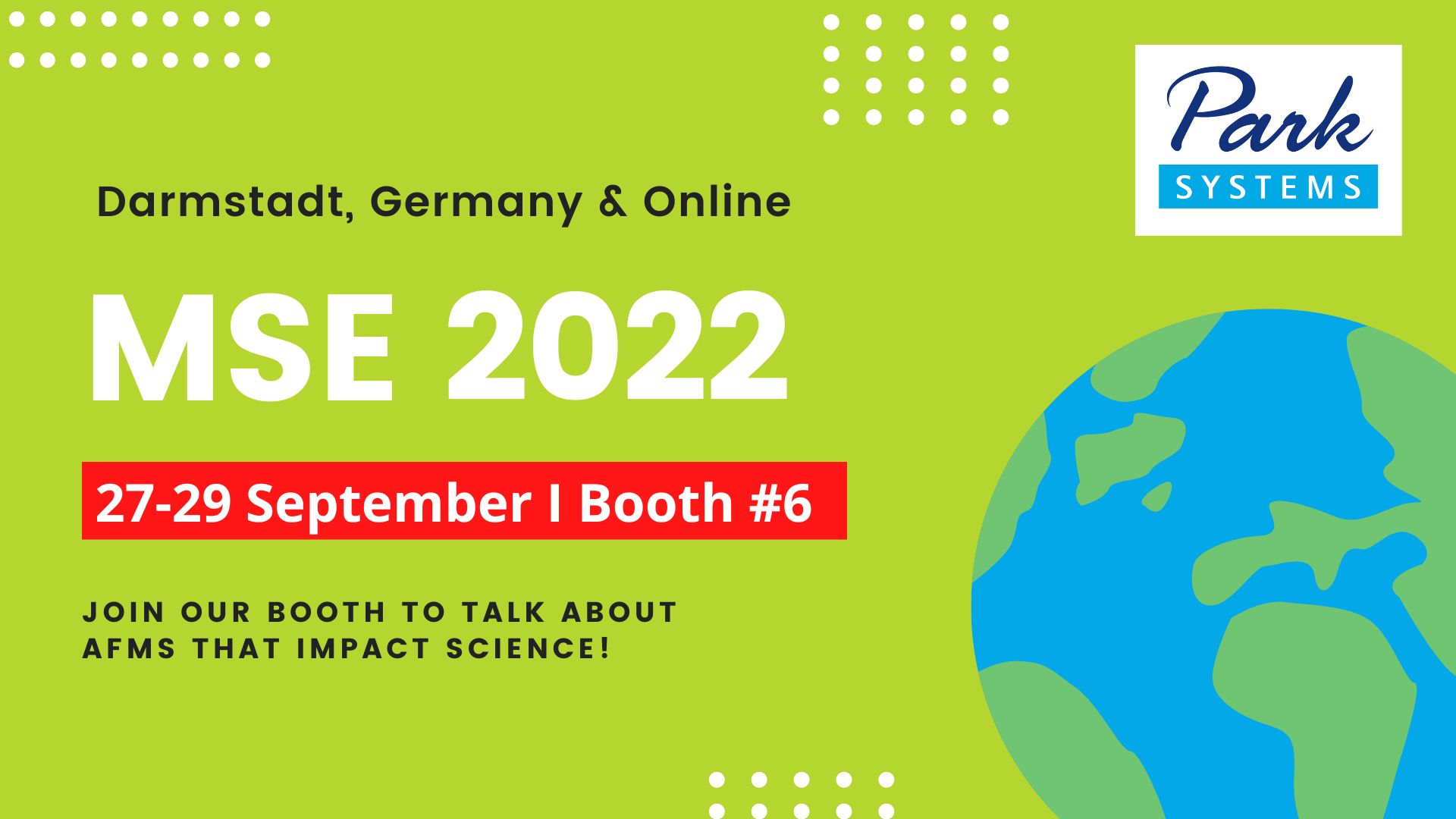
From September 27 to 29 2022, Europe´s Material Scientists and Engineers will meet at the Materials Science and Engineering Congress (MSE) at the Darmstadt University of Technology, Germany. Park Systems is proud to announce its participation as an exhibitor!
Hosted by the German Materials Society (DGM) in Darmstadt, Germany, the MSE has become the central platform for materials science and engineering experts to present their research to a large international community and to network across borders. In addition to different side events, the DGM Day with its Young Talent Forum is an integral part of the MSE.
Join Andrea Cerreta, the Principle Scientist at Park Systems Europe, for his talk on "Comprehensive Local Investigations of Mono- and Multilayer Coatings via Atomic Force Microscopy"
- When: Wednesday 28 September, 11:40am Session 1 F05.1
Abstract:
In an ever-advancing miniaturization of our modern, high-tech world, thin films and multilayer coatings gain increasing attention as they could pave the way to novel applications like ultra-thin ferroelectrics, protective coatings with adjustable friction, or tailored conductive properties [1-3]. In this sense, the thinnest films imaginable are single layers of 2D materials like graphene, hexagonal boron nitride (hBN), or transition metal dichalcogenides (TMDs) like (tungsten disulfide) WS2. However, reliable application of such nanometer-sized structures requires a correlative metrology that resolves such features [4].
Here, atomic force microscopy (AFM) has been established as a most versatile tool for the characterization of structures and interfaces with sub-nanometer resolution. The unique utilization of a nanometric probe in close proximity to the sample allows for a series of advanced characterizations of the material properties beyond crucial topographical information such as step height, roughness, and lattice periodicity. Nanomechanical measurements to map the adhesion, stiffness, or even friction with unparalleled high resolution can be performed. The ability to apply a bias locally permits to correlate these properties with additional features like the work function and conductance and thus provides a comprehensive investigation of morphology and defects with a broad spectrum of local information, which helps to optimize the preparation and development of new materials. Lastly, a high degree of automation enables AFM systems to program batch processes for wafer sampling, e.g. to study sample degradation vs. time caused by various factors, including illumination or humidity.
In this talk, we demonstrate the versatility of AFM via a nanoscale characterization and manipulation of switchable ferroelectric domains in hBN/graphene heterostructures. Moreover, we present a study on light-induced WS2 coating degradation vs. time and outline local tribological measurements to investigate the nature of graphene step edges and the number of layers via friction.
[1] N. R. Glavin et al., Adv. Mater. 32. 7 (2020) 1904302
[2] A. Gupta et al., Progress in Materials Science 73 (2015) 44-126
[3] C. Cui et al., NPJ 2D Materials and Applications 2 (2018) 18
[4] M. Vizner Stern et al., Science 372, 6549 (2021) 1462-1466
- Event Dates: September 27- 29
- Venue: Technical University of Darmstadt, Germany
- Our location: booth #6
About the German Materials Society (DGM):
The DGM is the largest technical-scientific society for Materials Science and Engineering in Europe. For almost 100 years it has combined the expertise of the specialist fields of science and the industry: representing the interests of its members from science and the industry - and as guarantor for the systematic development of the fields of materials science and materials engineering.
Link: https://www.mse-congress.de/home/
